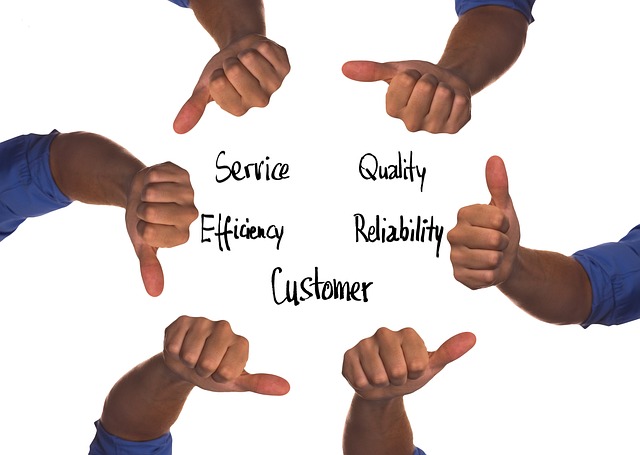Understanding the Importance of a Strong Customer Support Team
Building a strong customer support team is not just about hiring personnel; it’s about creating a culture focused on resolving customer issues efficiently and effectively. Customers are the lifeblood of any business, and their satisfaction is paramount. When problems arise, as they inevitably do, the manner in which a company addresses these concerns can either strengthen customer loyalty or drive clients away. A company with a solid customer support framework fosters trust and satisfaction, serving to create a positive feedback loop—satisfied customers are more likely to return and recommend the business to others. Customers today have many choices, and poor customer service can lead them to competitors in no time.
Moreover, a proficient customer support team doesn’t just react to problems; it proactively seeks to improve customer experiences. By collecting and analyzing feedback, the team can identify common pain points, streamline processes, and enhance product offerings. This ongoing dialogue between customers and support teams allows companies to evolve and stay ahead of market trends. Furthermore, investing in customer support yields significant returns; evidence points to the fact that companies that excel in customer service outperform their competitors. In essence, a strong customer support team becomes a unique selling proposition for businesses operating in saturated markets.
Recruiting the Right People
Finding the right people for your customer support team is fundamental for building a stellar operation. Start by defining what qualities make an exceptional support representative. While technical knowledge is an asset, interpersonal skills are vital. Customer support agents must possess excellent communication skills, both verbal and written. Effective communication goes beyond mere words; it encompasses tone, empathy, and the ability to remain calm under pressure. Anyone who has had to navigate a frustrating issue knows how reassuring a friendly voice can be. Therefore, prioritize candidates who display emotional intelligence and a genuine desire to help customers.
Another important criterion in recruiting is the attitude of candidates. While skills can be cultivated through training, hiring individuals who genuinely believe in the company’s mission and values can create a more aligned team. Look for individuals who can not only follow instructions but also think on their feet. Those who can demonstrate problem-solving skills during the interview process should catch your eye. Evaluating candidates through situational-based questions can offer insight into how they think through problems and how they might perform under real-world pressure.
Additionally, invest time in creating a comprehensive onboarding process. This equips new hires with the tools and information they need to be effective right from the start. Provide thorough training on technical skills, as well as soft skills. Role-playing scenarios can be particularly impressive in preparing staff for a range of customer interactions. When new employees feel well-prepared and supported, they become motivated to meet customer needs. This investment in your people will pay dividends—not just in their performance, but also in employee satisfaction, leading to lower turnover rates.
Training and Empowerment
Once you have your customer support team in place, the journey doesn’t end with recruitment. Ongoing training is critical to maintaining a high-performing team. The landscape of customer support is ever-changing, thanks to advancements in technology and evolving customer expectations. Regular training sessions can ensure your support agents stay ahead of the curve. These sessions should not only focus on technical tools but also include skill-building activities that enhance empathy, communication, and problem-solving capabilities. An empowered team is one that feels capable and confident in their role.
Furthermore, consider implementing a mentorship program where seasoned team members guide newer agents. This approach fosters a sense of community and allows less experienced representatives to learn from their peers. When employees feel supported in their roles, they exhibit higher job satisfaction, which translates to better service for customers. A continuous feedback loop is also beneficial; customer support representatives should feel comfortable sharing their ideas and suggestions regarding training and processes.
In addition to enhancing skills, create an environment where staff members feel empowered to make decisions. In many cases, customers appreciate swift resolutions over strict adherence to protocols. Allowing agents to take ownership of their interactions, within reason, enhances customer experience. This could involve offering discounts or escalations to supervisors without needing managerial approval. When agents possess the agency to resolve issues quickly, they enhance customer satisfaction dramatically.
Utilizing Technology Effectively
Technology plays an integral role in modern customer support. A wide range of software and tools can improve efficiency and enhance customer relationships. Implementing the right customer relationship management (CRM) system can centralize customer information, making it easier for support agents to deliver personalized assistance. Customers appreciate when company representatives refer to their past interactions. This makes them feel valued and understood, a key element in building lasting relationships.
Moreover, incorporating chatbots or automated assistance can effectively handle basic inquiries, freeing up human agents to focus on more complex issues. This tiered support model allows you to serve more customers simultaneously. However, balance automation with the human touch; some customers may require assistance from a trained representative even for minor issues. Remember to gather analytics from your support system to identify trends in customer issues. This information allows you to inform product development and make data-driven decisions to enhance your company’s offerings.
Additionally, consider utilizing social media platforms for customer support. Many consumers prefer to initiate contact through social channels rather than traditional methods. By establishing a presence on platforms like Twitter and Facebook, a company can respond to queries quickly and publicly. Quick responses on social media can enhance your reputation dramatically; however, the transparency of social media also means that missteps can become public. Thus, ensuring your team is trained in handling sensitive issues appropriately is essential for maintaining credibility.
Creating a Positive Work Environment
The culture within your customer support team can significantly impact performance. A positive and inclusive work environment encourages creativity and collaboration. Celebrate successes, both big and small, to foster a sense of community within the team. Recognition can take many forms, from shout-outs during team meetings to formal awards. When employees feel valued, they become more engaged and committed to delivering high-quality customer service.
Consider implementing team-building activities to cultivate relationships among team members. Engaging in out-of-the-office activities can break down barriers and enhance communication. Additionally, be sure to listen to your team’s feedback about their work environment. Regularly scheduled check-ins can uncover areas for improvement or highlight outstanding aspects of team dynamics. When employees have a voice, it promotes a sense of ownership over their work environment.
Work-life balance is another crucial consideration. Burned-out employees cannot deliver the exceptional service that customers expect. Therefore, managers should strive to create schedules that allow for adequate personal time. Flexibility in work arrangements can also benefit both employees and the organization. Remote work or hybrid models can provide agents with the comfort needed to perform their roles effectively. Additionally, investing in employee wellness programs can further enhance satisfaction and performance. Remember, a well-supported team is more effective at supporting customers.
Measuring Success and Continuous Improvement
Measuring the effectiveness of your customer support team is essential for continuous improvement. Define key performance indicators (KPIs) that align with your company’s objectives. Metrics such as first response time, resolution time, customer satisfaction scores, and ticket volume can provide insight into how well your team is functioning. Regularly evaluate these metrics and identify trends. This data can help assess whether training or process modifications are necessary.
Moreover, customer feedback should play a significant role in measuring success. Post-interaction surveys can provide valuable insights into customer perceptions of support. Ask open-ended questions to gather qualitative data, and don’t shy away from following up with dissatisfied customers to understand their experiences further. This kind of engagement not only highlights areas for improvement but also shows customers that their opinions matter. Their feedback can guide strategies moving forward and demonstrate a commitment to enhancing the customer experience.
In addition to customer feedback, internal evaluations of your support team can drive continuous improvement. Managers should regularly assess team practices and identify high-performers to share best practices throughout the team. Encouraging peer-to-peer learning fosters a culture of excellence and accountability. Remember, reaching out for feedback, both internally and externally, establishes a culture where growth is valued. This atmosphere nurtures creativity, keeps agents energized, and ultimately strengthens your customer support team.
Conclusion
Building a strong customer support team requires dedication and an understanding of its complexities. From recruitment to continuous improvement, every step is vital in creating a system that works for both your agents and customers. As you develop your team, always remember that at the heart of customer support lies one fundamental principle: a commitment to helping others. When this principle guides your strategy, you’re well on your way to building a community of satisfied customers who will champion your brand. In today’s competitive landscape, excelling in customer service is no longer optional; it’s an essential component of business success.
FAQs
- 1. What is the most important quality in a customer support agent?
- Empathy is arguably the most vital quality. Customers need to feel understood and valued, and empathetic agents can make that connection.
- 2. How often should customer support training occur?
- Regular training sessions should take place at least quarterly, with additional workshops as necessary to keep skills sharp and updated.
- 3. What metrics should I focus on to evaluate customer support performance?
- Key metrics include first response time, resolution time, customer satisfaction scores, and the number of tickets handled.
- 4. How can technology improve customer support?
- Technology can streamline workflows, enhance communication, and provide analytics for improvement. CRM systems and chatbots are excellent examples.
- 5. How can I create a positive work environment for my customer support team?
- Foster a culture of recognition, ensure work-life balance, encourage peer relationships, and solicit feedback regularly for improvements.



